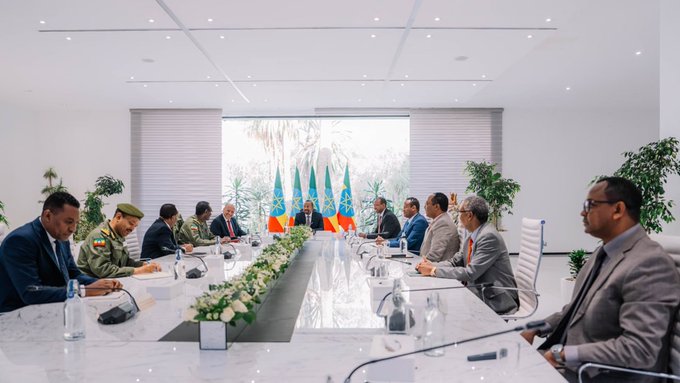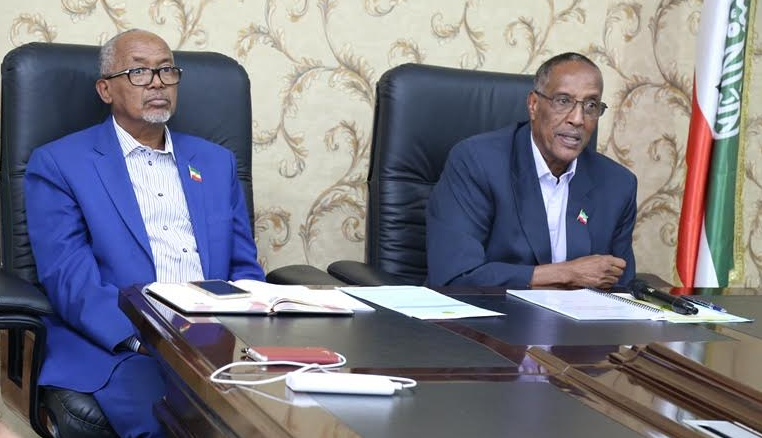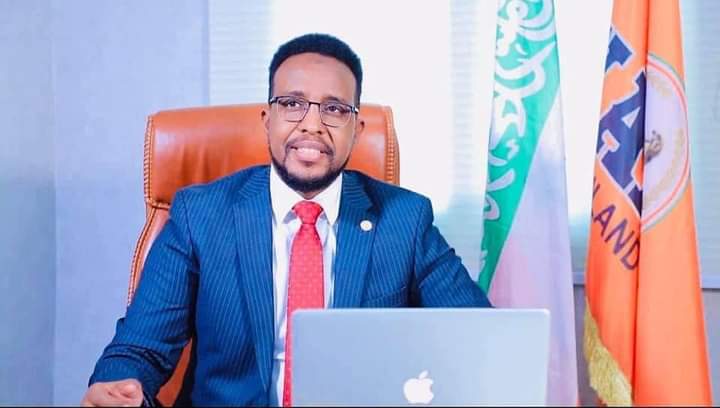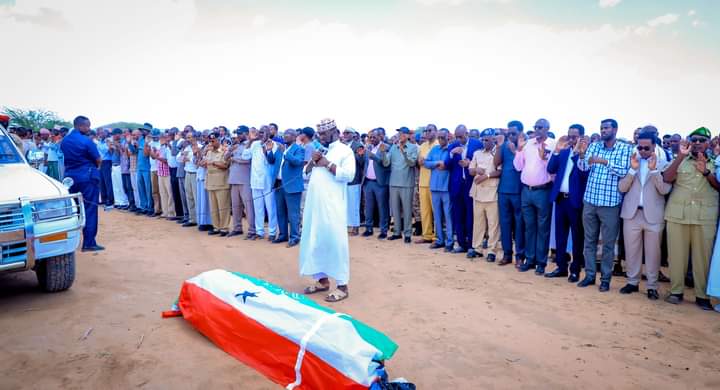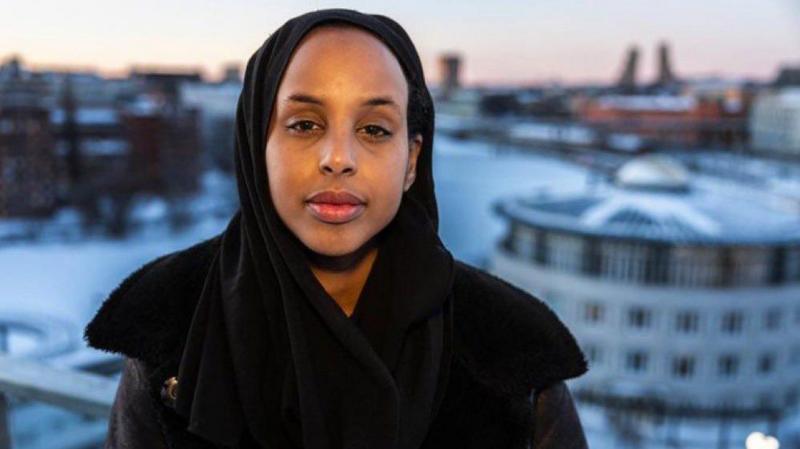Thursday June 21, 2018
Ali speaks with a group of Somali migrants in a detention centre in Libya.
Somalia - As the sun begins to rise, 150 migrants welcome their first morning on Somalia’s soil in, what is for some, years and, others, months. Disembarking an IOM, UN Migration Agency, charter flight from Libya, at the end of May 2018 is the final haul of a long and hard journey. It is not the end that they had expected when they had first set out from Somalia. It isn’t Europe but it is home and it is safe.
Among the passengers is Ali Said Faqi, Ambassador for the Somali Government to the European Union (EU), and a major part of the mission to help Somali migrants stranded in Libya return home to their families. While few might have missed the stark media headlines on the abuse African migrants have faced at the hands of smugglers, traffickers and criminal gangs in Libya, Ali is one of the few, who have travelled to the source of these stories.
Ads By Google Like most Somali diaspora, who were forced to flee the civil war, he is well acquainted with, what can be for many, the agonizing feeling of leaving home. After Ali left Somalia in the 1990’s, he passed through Kenya, Italy and Germany, before finally arriving in the United States in December 1998. He went on to become a prominent scholar in toxicology. His academic resume includes a PhD in toxicology from the University of Leipzig, more than 100 published scientific papers, two text book in toxicology and various impressive academic tenures.
In June 2013, Ali received an unexpected call from the Speaker of the Somali Parliament Mohamed Osman Jawari and the former President Hassan Sheikh Mohamud. They were looking for a nominee for the post of Somali Ambassador to the EU. ‘I never harboured any political ambitions, but nonetheless contributing to my country’s welfare was always close to my heart,’ Ali says. The decision was therefore easy, and by the following day Ali Faqi was an Ambassador.
Ali with a returnee from Libya as he travels home to Somalia.
His journey to Libya several years later came about through another request from the highest echelons of the Somali Government. In the wake of the harrowing news stories of Africans being sold as slaves in Libya, President Mohamed Abullahi Farmajo called upon his Ambassador for help. ‘First, I was only to do a three-day mission to Libya but I ended up staying altogether 25 days,’ says Ali. When seeing the conditions in which the Somalis were held in Libya and hearing their harrowing stories, Ali could not return back before having done everything in his power to help them. ‘The stories I was told were like horror movies – all marked by experiences of hunger, thirst, torture, rape, forced labour and a long list of unimaginable abuses,’ Ali says.
This was his big chance to pay tribute to the country he loved so dearly – and he certainly rose to the challenge. When he eventually boarded a plane to Libya, he was not alone. Through IOM’s humanitarian voluntary return assistance, 75 Somalis reunited with their families. This attested to the importance of Ali’s hard work in getting Somali migrants out of Libya’s detention centres and of IOM’s operations to get them home. It was not long before Ali received a new wave of pledges for support.
Ali’s strong commitment and hard work has gained him wide international recognition, such that, on 18 May 2018, he was granted the African Leadership Award for Outstanding International Humanitarian Service by the Independent Pan African Youth Parliament. With such a commitment to stranded Somali migrants, the sky is the limit for what Ali can achieve.
Somali migrants, once stranded in Libya, arrive home in Somalia via an IOM charter flight. Photo: UNSOM Somalia/2018
Through this project, altogether 235 Somali migrants have been assisted with voluntary return from Libya since March 2018, and an additional group of 200 people are expected to be assisted in the month of June 2018. This return and reintegration assistance of Somali migrants is part of the larger EU-IOM Joint Initiative for Migrant Protection and Reintegration, which facilitates orderly, safe, regular and responsible migration management through the development of rights-based and development-focused policies and processes on protection and sustainable reintegration. The EU-IOM Joint Initiative, backed by the EU Trust Fund, covers and has been set up in close cooperation with a total of 26 African countries.
The reintegration support under the Joint Initiative aims to address returnees’ economic, social and psychosocial needs and foster inclusion of communities of return in reintegration planning and support whenever possible. To address these needs, the programme promotes an integrated reintegration approachthat supports both migrants and their communities, has the potential to complement local development and aims to mitigate some of the drivers of irregular migration. The reintegration assistance is tailored to needs and opportunities. The value and duration of the assistance is not fixed and can vary. The programme does not foresee specific one size fits all reintegration packages.
advertisements
- Refugees in Kenya create $56m per annum business industry - TRT
- Families in Elbarde, Bakool region, miss meals as shilling loses value and food becomes short - Radio Ergo
- ISS: Somalia must look inward to defuse its tensions - ISS
- Kenya to highlight skills training to enhance refugees integration - Xinhua
- More than 250,000 refugees returned to Somalia, UN says - The Star
- Al-Shabab Militant Group Getting Lucky, Not Stronger in Somalia - VOA
- Storm-hit Somaliland Students Worried About Exam Prospects - Radio Ergo
